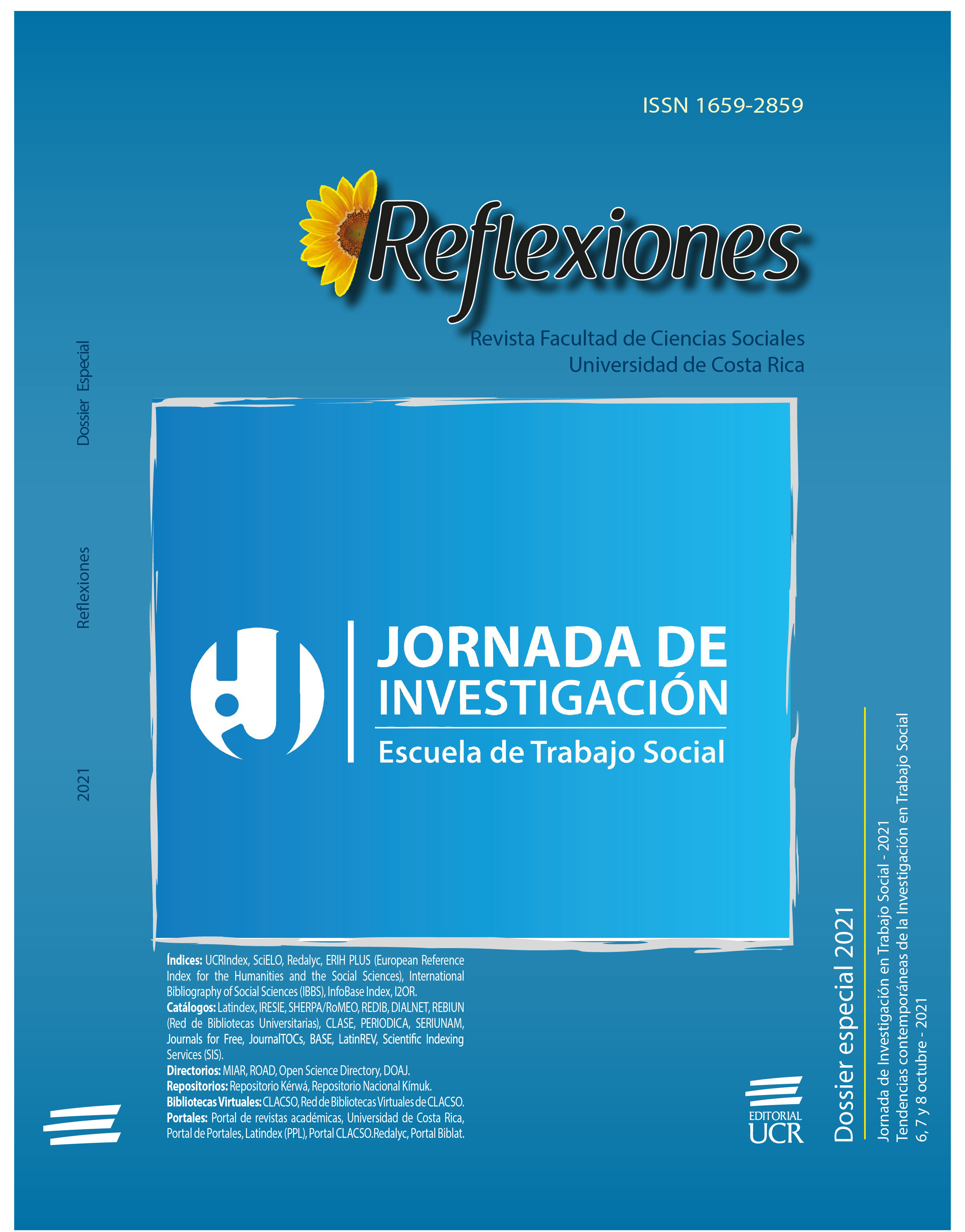Abstract
Introduction: environmental sanitation is seen as one of the most significant challenges in terms of planning and execution of national-local development strategies from a holistic vision, which would come to contribute to the improvement of people's quality of life and the generation of environmentally sustainable environments.
Objective: the objective of this article is to analyze the main determinants that affect environmental sanitation conditions in Costa Rica, to provide an overview of the current challenges, opportunities and recommendations faced by municipalities to improve the environmental situation of their communities.
Methodology: An analysis of sanitation was conducted from six theoretical approaches proposed in the Graduation Seminar entitled «Principales determinantes que inciden en las condiciones de saneamiento ambiental en las nueve regiones del territorio costarricense, establecidas por el Ministerio de Salud» (Main determinants that affect the conditions of environmental sanitation in the nine regions of the Costa Rican territory, established by the Ministry of Health). The methodology was based on studies case study, through which the determinants that affect the conditions of environmental sanitation were identified and, for the construction of these, a sample of nine municipalities was selected and the persons in charge of the environmental management departments were interviewed.
Results: as part of the results, geographical, environmental, socio-cultural, economic, and political determinants were identified, which are part of the framework of environmental management strategies implemented by the municipalities in their respective local spaces.
[Continue reading in the article]
References
Calvo Salazar, Cindy. 2017. «El alcance de un saneamiento ambiental sostenible en países en desarrollo». Imagen, Cultura y Territorio, una mirada al contexto.
Campos Gómez, Irene. 2000. Saneamiento Ambiental. Costa Rica: Editorial UNED.
Carmona Meza, Zenén., y Devian Parra Padilla. 2015. «Determinantes sociales de la salud: un análisis desde el contexto colombiano». Revista Salud Uninorte. 31(3): 608-620.
Chamizo García, Horacio. 2010. «La gestión del saneamiento ambiental en asentamientos humanos en Costa Rica: los casis de dos comunidades urbanas y rural». Cuadernos de Investigación UNED. 2(2): 123-131.
CDSS (Comisión sobre Determinantes Sociales de la Salud). 2008. Subsanar las desigualdades en una generación. Alcanzar la equidad sanitaria actuando sobre los determinantes sociales de la salud. Resumen analítico del Informe Final. Ginebra: OMS.
Escalera Reyes, Javier y Esteban Ruiz Ballesteros. 2011. «Resiliencia ecológica, aportaciones y retos desde la Antropología». Revista de Antropología Social. 20: 109-1
Barquero Zúñiga, Luis, Ana Carrillo Zúñiga, Estéfani Delgado Mora y Susana Murillo Rojas. 2020. «Principales determinantes que inciden en las condiciones del saneamiento ambiental en las nueve regiones del territorio costarricense establecidas por el Ministerio de Salud». Seminario de graduación de licenciatura, Universidad de Costa Rica.
Liévano Latorre, Adriana. 2013. «Escenarios y perspectivas de Trabajo Social en Ambiente». Revista Trabajo Social, 15 (15): 219-233. https://revistas.unal.edu.co/index.php/tsocial/article/view/42586
LATINOSAN (V Conferencia Latinoamericana de Saneamiento). 2019. Informe regional de la V Conferencia Latinoamericana de Saneamiento, resumen ejecutivo. Costa Rica.


